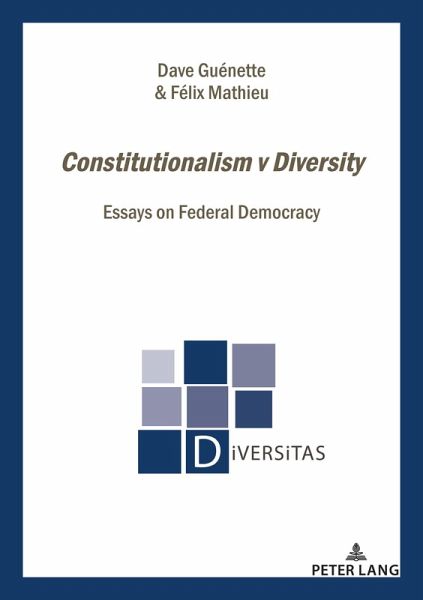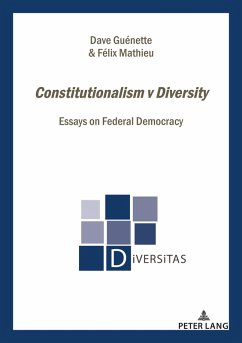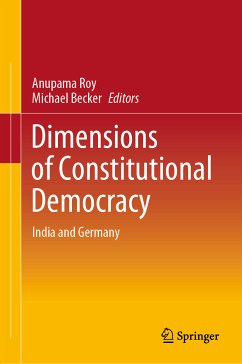
Constitutionalism v Diversity (eBook, PDF)
Essays on Federal Democracy
Versandkostenfrei!
Sofort per Download lieferbar
Statt: 45,95 €**
37,95 €
inkl. MwSt.
**Preis der gedruckten Ausgabe (Broschiertes Buch)
Alle Infos zum eBook verschenkenWeitere Ausgaben:

PAYBACK Punkte
19 °P sammeln!
This book provides an in-depth analysis of how constitutionalism and diversity can be friends and foes alike in contemporary multinational democracies. By focusing mainly on the dynamics between Quebec and Canada and comparing these with ongoing issues in Catalonia and Spain, Flanders and Belgium, and South Tyrol and Italy, the authors offer new insights into the public management of national diversity. In doing so, they sought to unpack the numerous challenges divided societies are facing.The pieces that together form the title of this book are not merely of symbolic significance. Constitutio...
This book provides an in-depth analysis of how constitutionalism and diversity can be friends and foes alike in contemporary multinational democracies. By focusing mainly on the dynamics between Quebec and Canada and comparing these with ongoing issues in Catalonia and Spain, Flanders and Belgium, and South Tyrol and Italy, the authors offer new insights into the public management of national diversity. In doing so, they sought to unpack the numerous challenges divided societies are facing.
The pieces that together form the title of this book are not merely of symbolic significance. Constitutionalism v Diversity: Essays on Federal Democracy echoes the four underlying principles of the Canadian Constitution that the Supreme Court of Canada identified in its famous 1998 Reference re Secession of Quebec. These are (1) federalism, (2) democracy, (3) constitutionalism and the rule of law, and (4) protection of minorities. While these four concepts are at the very core of both authors' argument and approach, the Supreme Court of Canada's Secession Reference is guiding them through the book by providing a robust and meaningful theoretical and analytical framework.
These principles appear as universal normative parameters societies should see as ideals to pursue and translate - while adapting their content to the specific context - into concrete institutions and practices. Even more today this book shows the great analytical value of these four principles to critically appraise of the way multinational liberal democracies in general and federal systems in particular are evolving.
The pieces that together form the title of this book are not merely of symbolic significance. Constitutionalism v Diversity: Essays on Federal Democracy echoes the four underlying principles of the Canadian Constitution that the Supreme Court of Canada identified in its famous 1998 Reference re Secession of Quebec. These are (1) federalism, (2) democracy, (3) constitutionalism and the rule of law, and (4) protection of minorities. While these four concepts are at the very core of both authors' argument and approach, the Supreme Court of Canada's Secession Reference is guiding them through the book by providing a robust and meaningful theoretical and analytical framework.
These principles appear as universal normative parameters societies should see as ideals to pursue and translate - while adapting their content to the specific context - into concrete institutions and practices. Even more today this book shows the great analytical value of these four principles to critically appraise of the way multinational liberal democracies in general and federal systems in particular are evolving.
Dieser Download kann aus rechtlichen Gründen nur mit Rechnungsadresse in A, D ausgeliefert werden.













